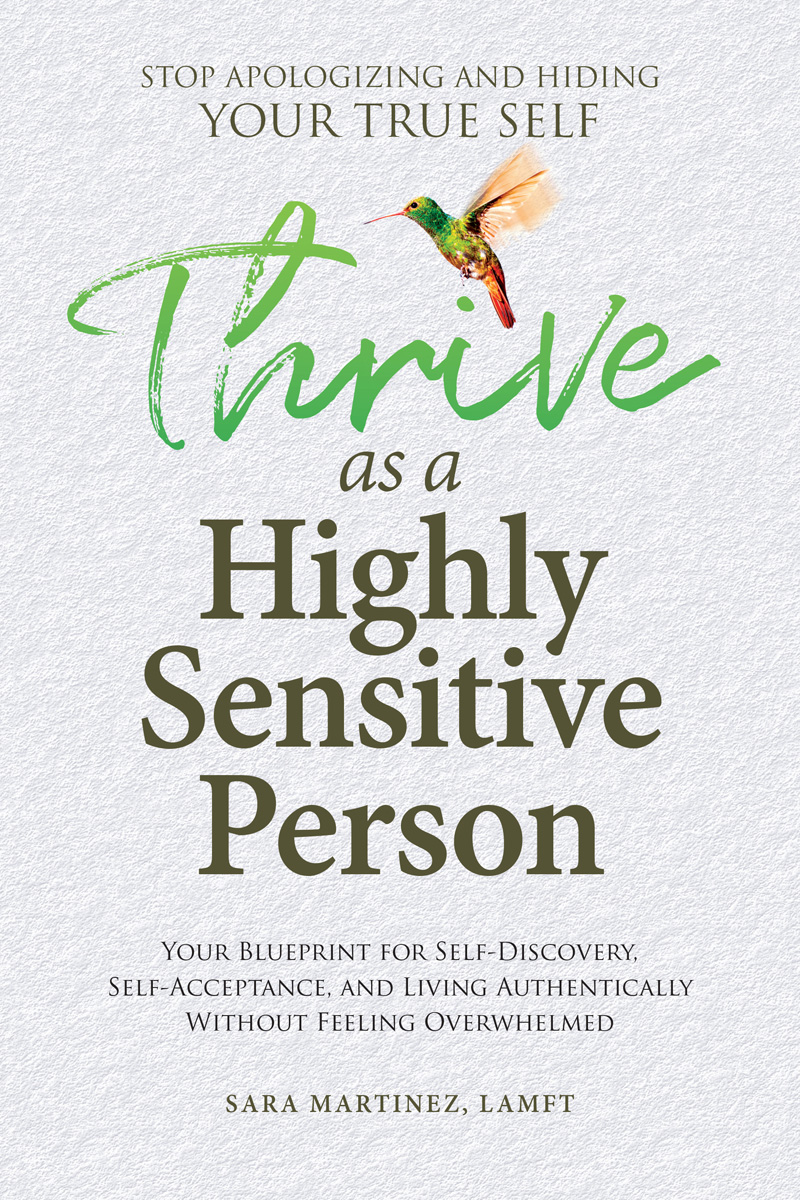Sara Martinez has been in education for most of her career. She has two master’s degrees, one in marriage and family therapy, and the other in school counseling. She has held positions teaching, as a therapist, and most recently, as a school counselor. She says her revelation about being a sensitive person came about 15 years ago, when her therapist told her she was indeed a “highly sensitive person” (HSP) and this helped explain why she was feeling overwhelmed with anxiety and stress. “It was like a light bulb moment, I realized—wait, I am not broken. There is nothing wrong with me. I am just a Highly Sensitive Person.”
Sara went on to learn more about highly sensitive traits and she recognized she would soon have to learn how to establish boundaries with her colleagues, family, and friends to not only protect her peace, but also to prevent burnout. “Highly sensitive people often are prone to anxiety and depression because they are sensitive to other people’s energy and emotions, so I knew I needed to take this on to figure out how to navigate it.” This led to her writing a book, entitled “How to Thrive as a Highly Sensitive Person.”
According to research by social psychologist Elaine Aron, Highly Sensitive People “have nervous systems and minds which permit more stimulation to enter without automatically and unconsciously shutting it out, and further, they then cognitively process the stimulation that they receive in more detail than others do. HSPs typically respond strongly, and quickly reach their natural level of tolerance in loud, bright, or chaotic environments.”
As Sara leaned further into acknowledging herself as an HSP, she realized that a lot of clients and students she worked with were also highly sensitive, and they didn’t realize it to be so. “I think there is power in recognizing that we are different, and it’s okay. It’s just important to figure out how we can honor the sensitivity so we can thrive and share our gifts with the world.”
In speaking about her experiences living and working in northern New Mexico, Sara says she wants to explore how the cultures and norms impact HSPs, whether it contributes to the sensitivity or not. “I’ve had early readers from my inner circle and they’ve told me it’s been insightful and helpful to them, as they realized they are also highly sensitive. It brings a sense of connectedness in acknowledgment that we share this trait.”
She goes on to talk about how the overall culture in New Mexico is built around surviving. “When you come from a working-class family, you don’t have time to be depressed or process whatever you’re enduring. Our parents had to go to work to make ends meet to provide for their families, so often, we push down the emotions because we weren’t necessarily taught how to deal with them.” This is something Sara works to help people find—their breakthrough in dealing with emotions overall.
When asked about HSPs and what contributes to creating higher sensitivity, Sara says this is not only a trait of humans, but in animals too. “If you think of deer eating in the field, some deer don’t pay much attention to their surroundings, they are just there to eat. But some will pause to evaluate the area, looking around for predators before grazing. Populations must have both types of deer for survival of the species. Researchers suggest this is why humans developed a highly sensitive trait. Some of us have to survive in every situation that might come up. However, humans are more complex thinking animals, so we must find a way to be sensitive and not suffer for it.”
Her book took 1-½ years to put together and sits at 158 pages. “Lou McCall, the former editor of Questa del Rio News, helped proof the book and an online community helped with the logistical pieces,” she says. “Even if you yourself are not a HSP, I encourage you to read the book, as it will help you in your relationships with people in your life who are.”
You can purchase Sara’s book, “How to Thrive as a Highly Sensitive Person,” in paperback on Amazon, and the e-book version on Kindle. Additionally, Sara plans to record the book in the coming months for Audible.



